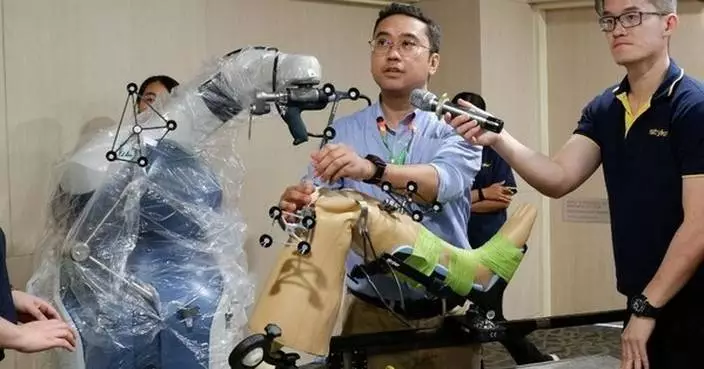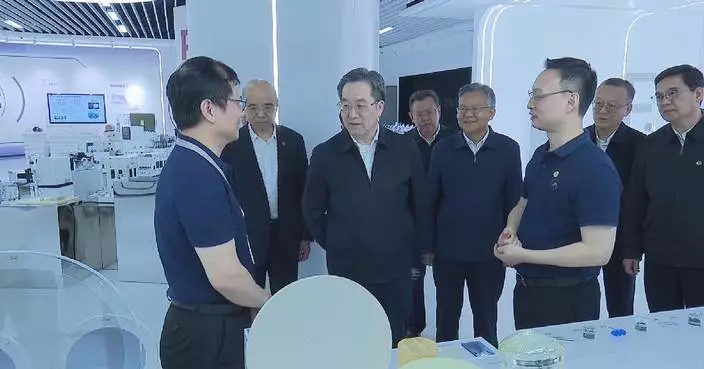MANILA, Philippines, March 6, 2025 /PRNewswire/ -- Tonik has crossed 1 million cumulative loans disbursed since inception, cementing its status as the Philippines' leading credit-led digital bank and propelling a new era of credit inclusion.
While traditional banks continue to emphasize corporate credit, Tonik zeroes in on a $40 billion latent unsecure consumer credit market—tackling one of Southeast Asia's most overlooked lending opportunities with a credit-first strategy powered by AI-driven underwriting and alternative data.
In just two years, Tonik has expanded its loan portfolio by 7x, while at the same time slashing unit operational service costs by 5x. This dynamic growth and cost focus helped the bank hit contribution margin breakeven in Q4 2024, paving the way for cash flow breakeven within the next 9-12 months.
Tonik also leads in average revenue per user (ARPU) and average margin per user (AMPU) across digital banking—showcasing a more robust monetization model than its payments-led peers.
"Reaching one million loans marks a major stride in our mission to deliver fast, accessible mass-market consumer credit across the Philippines," said Greg Krasnov, Founder & CEO of Tonik. "We're scaling rapidly while turning an operational profit—a rare combo in fintech—and we see much more upside ahead."
Consumer lending in the Philippines comprises just 5% of GDP, far below the 21% regional average. Armed with a digital-only bank license, Tonik secures low-cost deposit funding, strongly outperforming fintech lenders forced to rely on more expensive wholesale capital.
With a diverse product lineup—payroll loans, shop instalment financing, AI-powered digital cash loans, and upsell loans—Tonik is poised for accelerating its impact in 2025 due to aggressive deployment of AI across the organization.
By marrying data-powered innovation with genuine consumer need, Tonik is ushering in a new era of technology-driven lending—one that combines high-volume growth with sustainable profitability, all in service of bringing much-needed credit to millions of Filipinos.
About Tonik
Tonik is the first digital-only neobank in the Philippines, providing loan, deposit, and payment products to consumers on a highly secure digital banking platform. The neobank operates based on the first digital bank license issued by the Bangko Sentral ng Pilipinas (BSP).
Tonik is led by a team of retail finance veterans who have previously built and scaled multiple retail banks and fintechs across global emerging markets. It is backed by top international investors, including Sequoia India, Point72 Ventures, and Mizuho Bank. Tonik's tech stack is integrated in partnership with world-class banktech vendors including Mastercard, Finastra, Amazon Web Services, Google, Genesys, and Daon. Tonik operates out of hubs in Singapore (HQ), Manila, and Chennai.
For media contact:
Nix Policarpio
pr@tonikbank.com
** The press release content is from PR Newswire. Bastille Post is not involved in its creation. **

Tonik Surpasses 1 million Loans, Redefining Consumer Lending in the Philippines
Skin anti-aging and immunity effects of Amorepacific's two proprietary ingredients,
'RE.D Flavonoid' and 'Senomune' revealed at the 2025 SID Annual Meeting
SEOUL, South Korea, May 16, 2025 /PRNewswire/ -- Amorepacific has demonstrated the efficacy of its two proprietary ingredients in improving skin aging and immune response through the NBRI program, jointly operated with Johns Hopkins School of Medicine. The findings were presented at the 2025 SID (Society for Investigative Dermatology) Annual Meeting in San Diego, California, last week.
NBRI (New Beauty Research Initiative) is a collaborative research program that Amorepacific has maintained with the Department of Dermatology at Johns Hopkins School of Medicine since 2022. The two organizations conduct multifaceted research cooperation on skin aging. At this year's SID meeting, NBRI program participants Professor Anna Chien's research team presented the efficacy of Amorepacific's bio-flavonoid ingredient, RE.D Flavonoid, and Professor Martin Alphonse's research team presented the benefits of the green tea-derived ingredient, Senomune.
Professor Anna Chien's team confirmed that RE.D Flavonoid, derived from the camellia plant, effectively improves photo-aging symptoms on the face and neck area without irritation. Notable improvements were observed across significant signs of skin aging, including fine lines, skin texture, pores, radiance, and pigmentation, with substantial changes in skin texture and radiance appearing from the eighth week of use. This research was based on long-term results from North American consumers of diverse ethnicities who used RE.D Flavonoid for six months. The study indicates that RE.D Flavonoid works by blocking signal transmission in skin aging and inhibiting collagen damage, which is crucial for skin elasticity.
Professor Martin Alphonse's team revealed that Senomune, a saponin component from green tea extract, mitigates immune cell damage and inflammatory responses caused by particulate matter (PM). The team also confirmed the potential for Senomune to reduce immune aging and chronic inflammatory reactions due to external environmental factors by balancing the metabolic functions of immune cells. This research was conducted using peripheral blood mononuclear cells (PBMC) from humans, and researchers observed reduced stress responses in immune cells to environmental harmful elements in groups pre-treated with the ingredient.
Dr. Suh Byung-fhy, CTO and Head of Amorepacific's R&I Center, stated, "The ongoing NBRI collaborative research program for Skin Longevity of our global customers provides a valuable opportunity to demonstrate the scientific excellence of Amorepacific's slow-aging skincare technology," adding, "Amorepacific will continue to focus on beauty solution research aimed at activating the skin's fundamental recovery capabilities beyond mere symptom improvement."
The Society for Investigative Dermatology (SID) is an organization dedicated to advancing the sciences relevant to skin disease and has held annual meetings since its establishment in 1937. At this year's 82nd conference, more than 1,600 researchers, clinicians, and dermatology residents from around the world gathered to present over 1,200 of the latest skin research findings.
** The press release content is from PR Newswire. Bastille Post is not involved in its creation. **

Amorepacific and Johns Hopkins School of Medicine's Joint Research Program 'NBRI' Participants Present Latest Findings

Amorepacific and Johns Hopkins School of Medicine's Joint Research Program 'NBRI' Participants Present Latest Findings























































